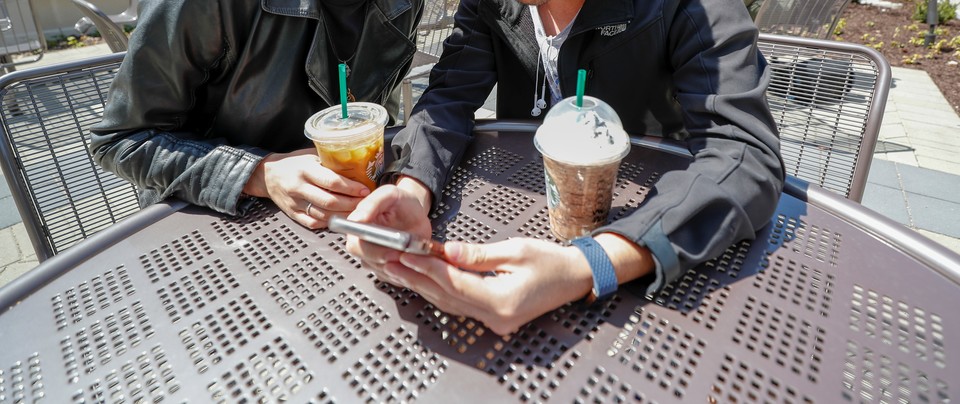
Lauren Anderson thinks up a reusable cup system to combat single-use coffee cup waste at the U of M.
What is the Cup Deposit Project?
Lauren: The Cup Deposit Project is a program based on minimizing the use of disposable coffee cups. It is based on something I saw being utilized in Hanover, Germany. The coffee shops there would provide a reusable cup for a fee/deposit and when it was returned to any participating coffee shop, the deposit would be returned. Making it essentially free to use as long as the cup was returned. In my Grand Challenge course, we were given an assignment to design and follow through with an individual sustainability challenge. Unsure of what to choose, I looked to my environment for inspiration and found it in the form of overflowing trash cans outside of campus coffee shops. This reminded me of the reusable cups in Hanover and I decided to create a business plan for a cup deposit program on campus. This project was something I wanted to continue to work on, so I applied for the Acara Challenge and was accepted. The Acara Challenge provides mentorship and funding for students developing solutions to environmental challenges or problems.
How does it work?
Lauren: When you’re buying a coffee (tea or hot chocolate etc.) from a participating shop on campus, you would make a deposit and receive your drink in a reusable to-go cup. The deposit could either be paid with cash or swiped from your UCard creating a cup hold on your card, similar to when you check out a library book. You would be able to swipe the UCard, have the deposit on your card, use the reusable cup and return it at any of the coffee shops that are also participating in the program. When finished, simply return the cup –to any participating coffee shop—swipe your UCard and the deposit would be removed from your account. Both options allow UCard holders as well as those visiting, for example prospective students, alumni, or even just a guest speaker, to participate. Because there are coffee shops located all over campus (on East Bank, West Bank and Saint Paul) and students travel frequently back and forth, participants will always be close to a coffee shop to either get a cup or return one. This would allow participants the freedom and accessibility of using the cups and returning them, campus-wide.
What do these deposit sites look like?
Lauren: Right now, we’re thinking of some different ideas. Prior to COVID, I had hoped to conduct a pilot project at the Weisman Art Museum in conjunction with one of their Study Nights to figure out logistical issues and receive feedback. In the future, some options could include a separate line for returned cups or even separate return locations, but I think it will depend on how we return to school as well as the preference at each coffee shop. At the moment, I don’t see the possibility of a machine, though I know there are a lot of great minds at the University, so maybe somebody smarter than me can come up with one. But that’s not really my wheelhouse, so if somebody has an idea for a machine then I would love to hear!
What would you do about all the cups that don’t make it back?
Lauren: Yeah, I’ve considered and budgeted for that, and actually that’s ok. The deposit pays for the cup but also helps buy more cups so the program can keep working and keep growing. The design of the cups will turn them into a kind of souvenir. Say after you graduate, you really want something that is going to mean something to you, like maybe you used the cup when you had long study hours and now see it as a symbol of your time here at school. You could keep it and you just wouldn’t get your deposit back, but leave with a personal souvenir.
What benefits would the U get from this?
Lauren: I think there would be several different benefits, but in different aspects. One would be a cleaner waste system. In theory, there would be fewer coffee cups balancing precariously on trash bins, which would be nicer for people that are emptying the trash bins, and it would look nicer for the University. I think it’s also a really great way to show other schools, and the rest of the country, that the University is committed to these big problems, such as sustainability, as well as the small ones such as individual waste. I know in the grand scheme of things, a cup system maybe isn’t the top priority, but I think it’s a nice way to connect all the values and bring it home for people.
What challenges did you run into while working on this project?
Lauren: I think COVID was definitely an unexpected challenge. Another concern was if the program would be accepted and utilized by people. I think it would be an adjustment but the trend for the use of reusable products has been going up.
What was the biggest thing you learned during the process?
Lauren: I definitely learned a lot. I learned about the movements towards sustainability. I had a lot of interesting conversations because of this project and it’s been very eye-opening. There are so many different people involved and multiple stakeholders. Just trying to make sure everybody’s voice is heard can be challenging, especially while keeping the integrity of the project intact. All in all, it was exciting to learn that we can do something good for the people on campus and for the campus itself.